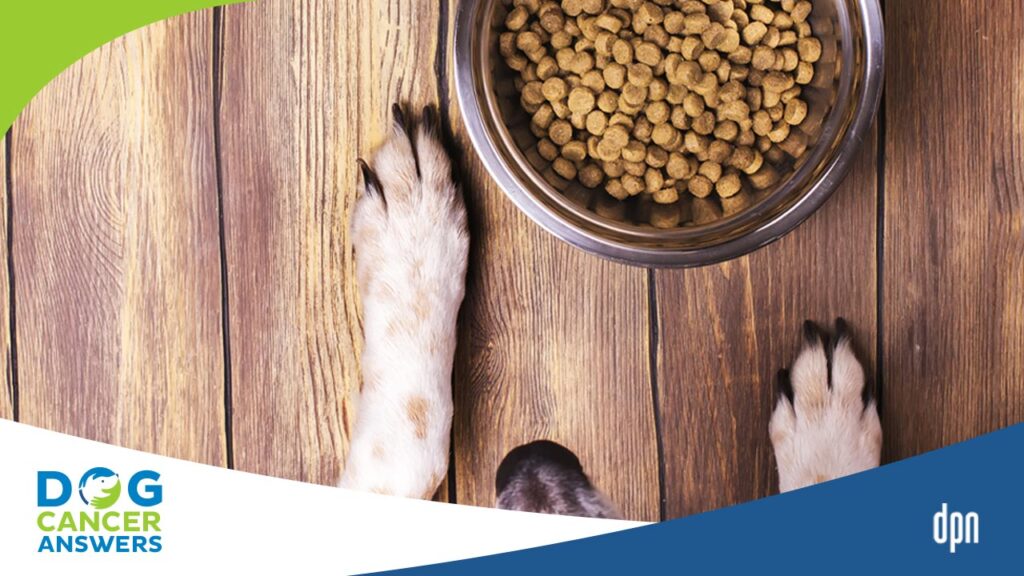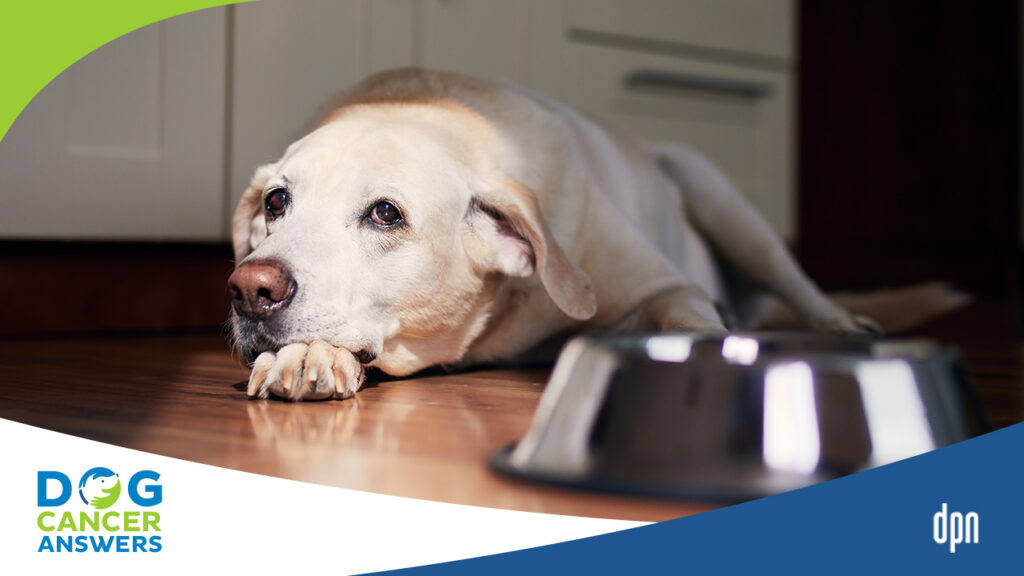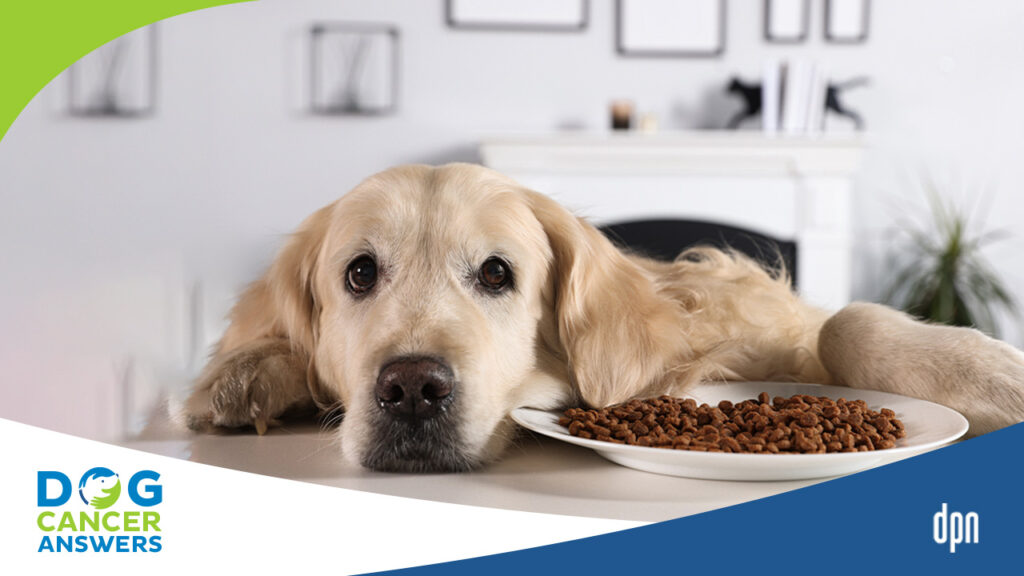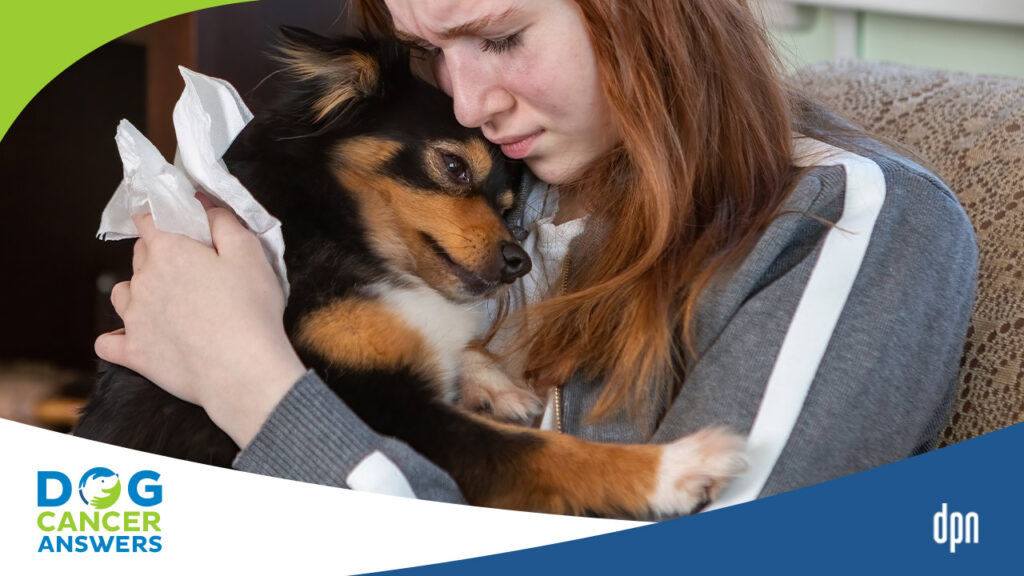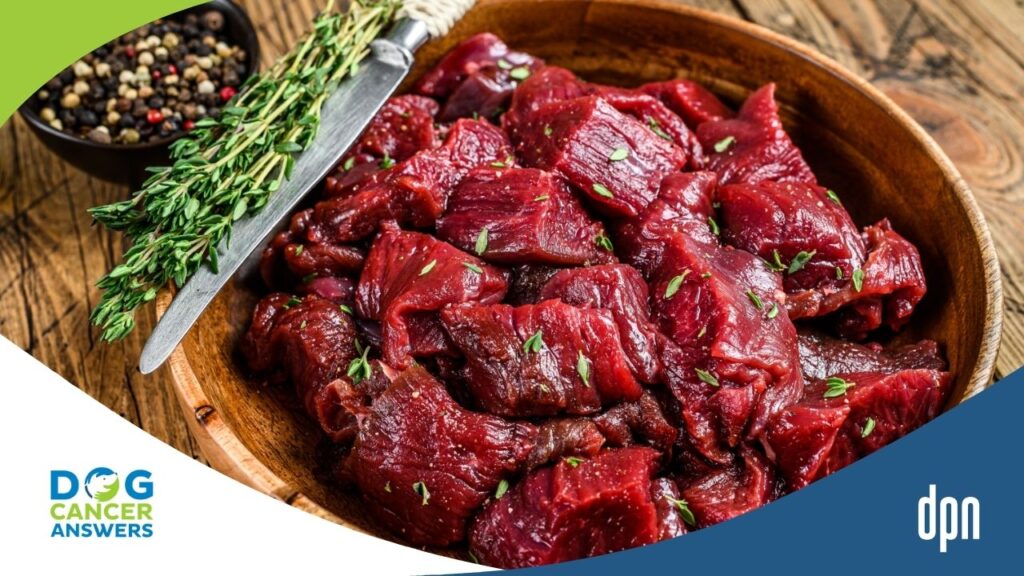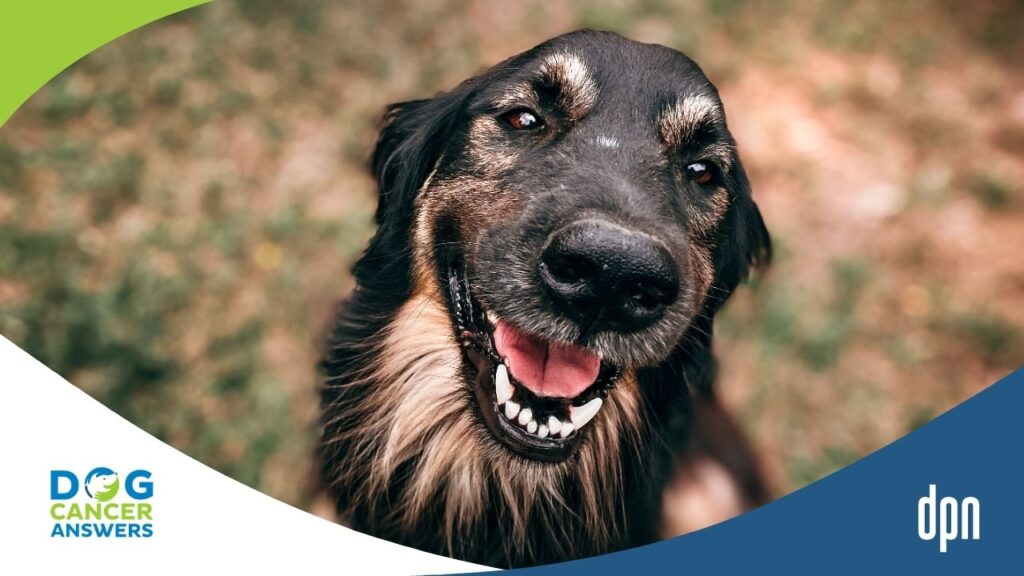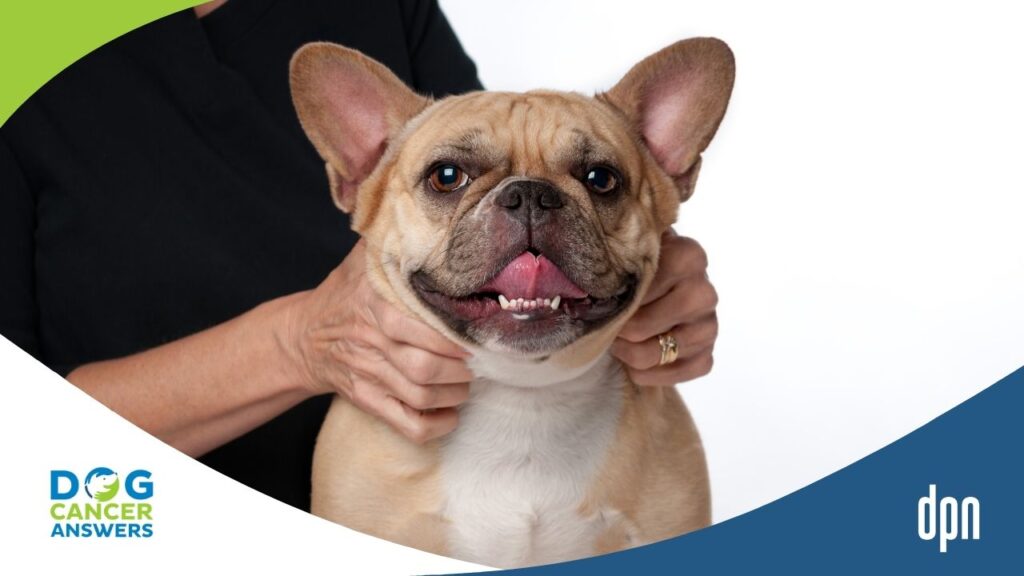>> Dr. Demian Dressler: Nine times out of 10, if an animal has a medical problem, it will be manifest in one way or another as decreased appetite.
>> Announcer: Welcome to Dog Cancer Answers, where we help you help your dog with cancer. Here’s your host, James Jacobson.
>> James Jacobson: Hello friend – and welcome to another Question and Answer episode of Dog Cancer Answers. Today we are addressing a very common question: when to worry about a dog not eating, and what you can do about it.
To get the answer, we turn to Dr. Demian Dressler, veterinarian and author of The Dog Cancer Survival Guide, the best-selling animal health book that is also our sponsor for today’s show.
Dr. Dressler graduated from the University of California at Davis before getting his Doctorate in Veterinary Medicine at Cornell University.
Dr. Dressler, this is Jen in Seattle asking about her dog, Devin.
Jen: Hi, this is Jen and I’m calling from Seattle Washington. My question is this it’s been two days since my dog last ate. Devin has been sniffing food and then turning away at the last minute and I don’t know what to do. How can I get him to eat? Is there something I can give him?
Will this get better? I really appreciate you taking my question.
James Jacobson: Dr Dressler.
Dr. Demian Dressler: Good question, and that’s a really open-ended question. The first thing I would suggest is you probably are going to want to take your dog, Jen, into the veterinarian. And the reason why is because nine times out of 10, if an animal has a medical problem, it will be manifest in one way or another as decreased appetite.
Not every time. I mean, you can have like diabetes and hormonal things that stimulate appetite. The appetite goes up, but usually if appetite goes down, it is connected to something is wrong and that’s usually a sign of illness. So we got to rule that out because you might be missing something. So the longer that people delay on this things conceivably go South and then you’re left with something that’s even worse because you chose to delay.
So that’s my advice. Get some veterinary help.
Now when doggies go up to their food and they sniff and they turn away. We call that a lack of appetite. And that deserves some comment because a lack of appetite has a wide array of presentations, meaning some of these dogs, all of a sudden stop eating their food that’s slightly less tasty than the very best treats they get. So they’ll still eat treats — but they don’t want their food.
And people will many times say, “Well, Fluffy is tired of their food.” Nine times out of 10, the appetite has gone down and all they want to eat are the very best things. They’ll eat the greasy liver; they won’t eat the dog food that they normally get. Because their appetite has gone down. And so that’s a sign of a medical problem.
Now, when we’re talking about appetite as a subject, stimulation of appetite can be done, and there’s say in cases where we’ve got cancer and it’s really bad, and it’s creating a loss of appetite and we’re struggling and we have to do home treatment, oral delivery of medications or of supplements, the dog is not eating, well that puts us in a very bad predicament, because say we have to do antibiotics. You do antibiotics on an empty stomach and you don’t want to bring the dog into the hospital for injections. Right? You want to do this at home, but the dog’s not eating.
And how do you give the antibiotics? Cause you’ll create vomiting. Cause that’s what happens. Well, you got to get food in there. Well, there’s some prescriptions that can be used. One is Entyce E-N-T-Y-C-E. That can be very effective appetite stimulant for these reasons. And then also Mirtazapine is another one that has really good appetite-stimulating properties, and also helps with nausea and vomiting.
So those’ll sometimes get you through the hump so that you can be giving treatments, supplements, et cetera, by mouth. While there is food in the stomach, so you don’t create an additional problem. And then as the body responds to those treatments and gets better, the appetite all by itself starts to improve.
And then you start to taper off and lay off the appetite stimulant and appetite support. So I hope that helps.
>> James Jacobson: I think it does, very much, thank you Dr. Dressler, and thank you Jen and Devin in Seattle.
Well, friends, it looks like the situation is clear: if your dog isn’t eating, there is almost certainly SOMETHING wrong on a medical level. The bottom line is: dogs eat when they’re feeling well, and they do not eat when they aren’t. So the first thing to do is to call your veterinarian and find out what could be the issue.
And yes, there ARE things that you can do to help your dog when he or she isn’t eating. There are medications and tricks and all sorts of ideas, and a good resource for you is the Deep Dive episode of this show that we did with Dr. Dressler’s co-author, Dr. Susan Ettinger. And you can find a link to that program in the show notes.
You can find show notes in your podcast app or at DogCancerAnswers.com, where you can also listen to or download our back catalog.
Don’t forget to hit the subscribe button, write a review, and tell a friend or your veterinarian about this podcast. It’s how we grow and it’s also the best way that you can help support us—so that we can support as many dog lovers as possible.
<<TOUCH TONE SFX>>
Those touch tones remind me to remind you to call our Listener Line–just like Jen did– and leave your question about dog cancer for one of our veterinarians to answer on a future episode. Call 808-868-3200 or visit our website at DogCancerAnswers.com.
And finally, we would like to thank our sponsor: The Dog Cancer Survival Guide book by Dr. Demian Dressler and Dr. Susan Ettinger. It’s available wherever fine books are sold both online and in physical bookstores. If you’d like to help support this show, get it right away direct from the publisher. You can get the paperback (with free shipping anywhere in the USA) or the ebook edition for just $9.95. To get either the ebook or the paperback go to this website: DogCancerBook.com. And because you’re a listener to this show, if you use the promo code “podcast”, you can save 10%. The website again: DogCancerBook.com, and use the promo code “podcast” for 10% off. That is www.DogCancerBook.com.
I’d like to thank Dr. Demian Dressler for being our guest today. If you’d like to reach out to him, his website is www.VetinKihei.com, that’s Vet in Kihei, spelled K-I-H-E-I, dot com. And thanks to Jen for her call.
Until next time, I’m James Jacobson. From all of us here at Dog Cancer Answers and Dog Podcast Network, I wish you and your dog a warm Aloha.
>> Announcer: Thank you for listening to Dog Cancer Answers. If you’d like to connect, please visit our website at DogCancerAnswers.com or call our Listener Line at 808-868-3200.
And here’s a friendly reminder that you probably already know: this podcast is provided for informational and educational purposes only. It’s not meant to take the place of the advice you receive from your dog’s veterinarian. Only veterinarians who examine your dog can give you veterinary advice or diagnose your dog’s medical condition. Your reliance on the information you hear on this podcast is solely at your own risk. If your dog has a specific health problem, contact your veterinarian.
Also, please keep in mind that veterinary information can change rapidly. Therefore, some information may be out of date.
Dog Cancer Answers is a presentation of Maui Media in association with Dog Podcast Network.


